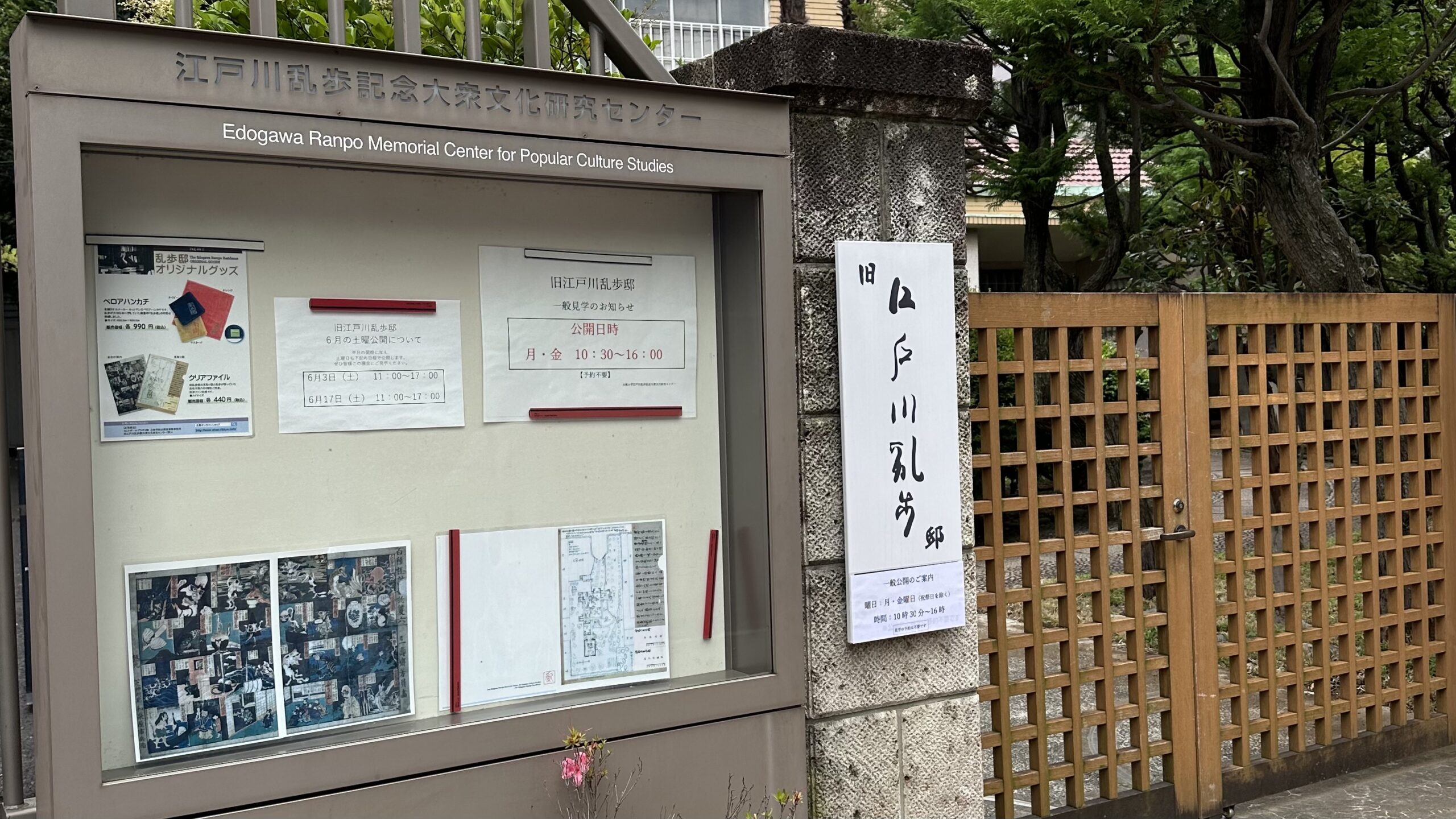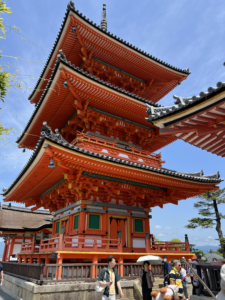
About a five-minute walk from the JR Ikebukuro Station, on the outskirts of Rikkyo Univerisity’s campus, is the location of the former residence of Edogawa Rampo.
The building has been converted into a museum for students studying popular culture to collect resources for scholarly projects. The Edogawa Rampo Memorial Center for the Study of Popular Culture is open every Friday and books can be viewed by appointment. You can send an application through Rikkyo University Library Online Public Access Catalogue to browse and view the materials.
Tarō Rampo is known across Japan as the pioneer of mystery and thriller novels. Drawing inspiration from American mystery-thriller writer, Edgar Allan Poe, he took on the pen name Edogawa Rampo. (The “ed” in Edogawa and “po” in Rampo are derivative of “Edgar” and “Poe”.) Rampo was a fan of Sir Arthur Conan Doyle and even attempted to translate “Sherlock Holmes” during his time as a student at Waseda University. He took his admiration of Doyle’s detective stories and attempted to create his own.
In 1923, Rampo made his literary debut by submitting “Two-Sen Copper Coin” to a popular magazine among adolescents, Shin Seinen. His story was wildly successful in Japan because his mystery dealt with well-known Japanese stories, allowing for deeper connections with its readers. One of his most famous works is “The Human Chair,” which was adapted into a manga by famous horror mangaka Junji Ito.
Rampo’s work falls under a specific genre called honkaku which roughly translates to standard detective fiction. His early works followed conventional mystery novel formulas, but as Rampo’s career evolved, he took a dark turn and focused on the grotesque, erotic and nonsensical and even explored the human expression of sexuality.
For example, Rampo’s 1930 publication “The Demon of the Lonely Isle” tells the story of a homosexual doctor in a same-sex relationship. Despite being highly controversial for its time, the public was eager to read more from Rampo.
In 1947, Rampo founded the Mystery Writers of Japan club to unite mystery writers of all literary talents and ages. The club is still in operation today and continues to honor Rampo’s legacy by giving out the Edogawa Rampo Prize to amateur writers who have yet to receive huge commercial success. On June 14, Koushirou Mikami was announced as this year’s winner and will have his title, “Souten no Toritachi,” published in August.
Today, most of Rampo’s work has been translated into English and can be found at American bookstores or online stores. One such translation is by Texas State assistant professor of Japanese, Seth Jacobowitz. His copy of “The Edogawa Reader,” a collection of Rampo’s short stories, can be purchased on Amazon.







